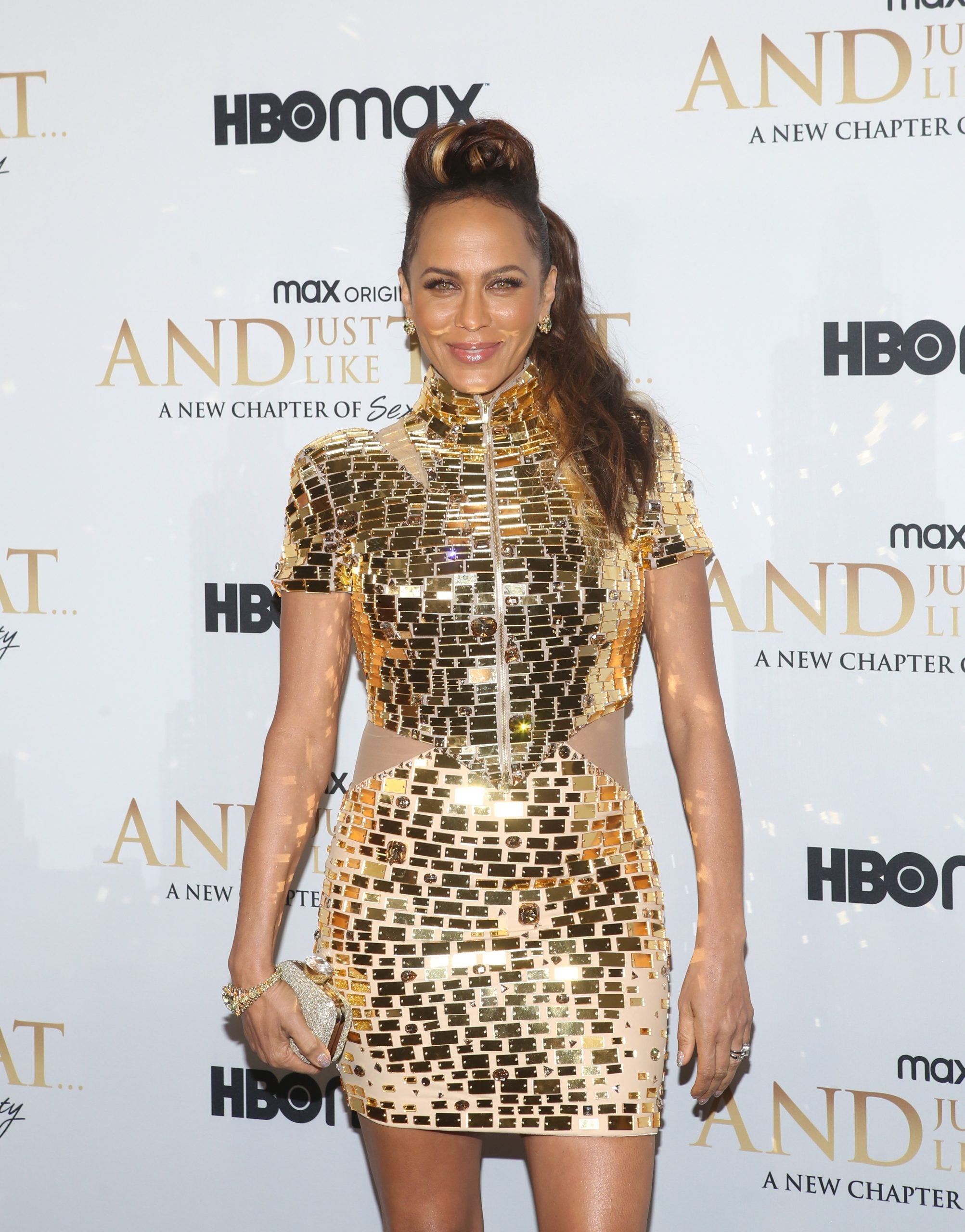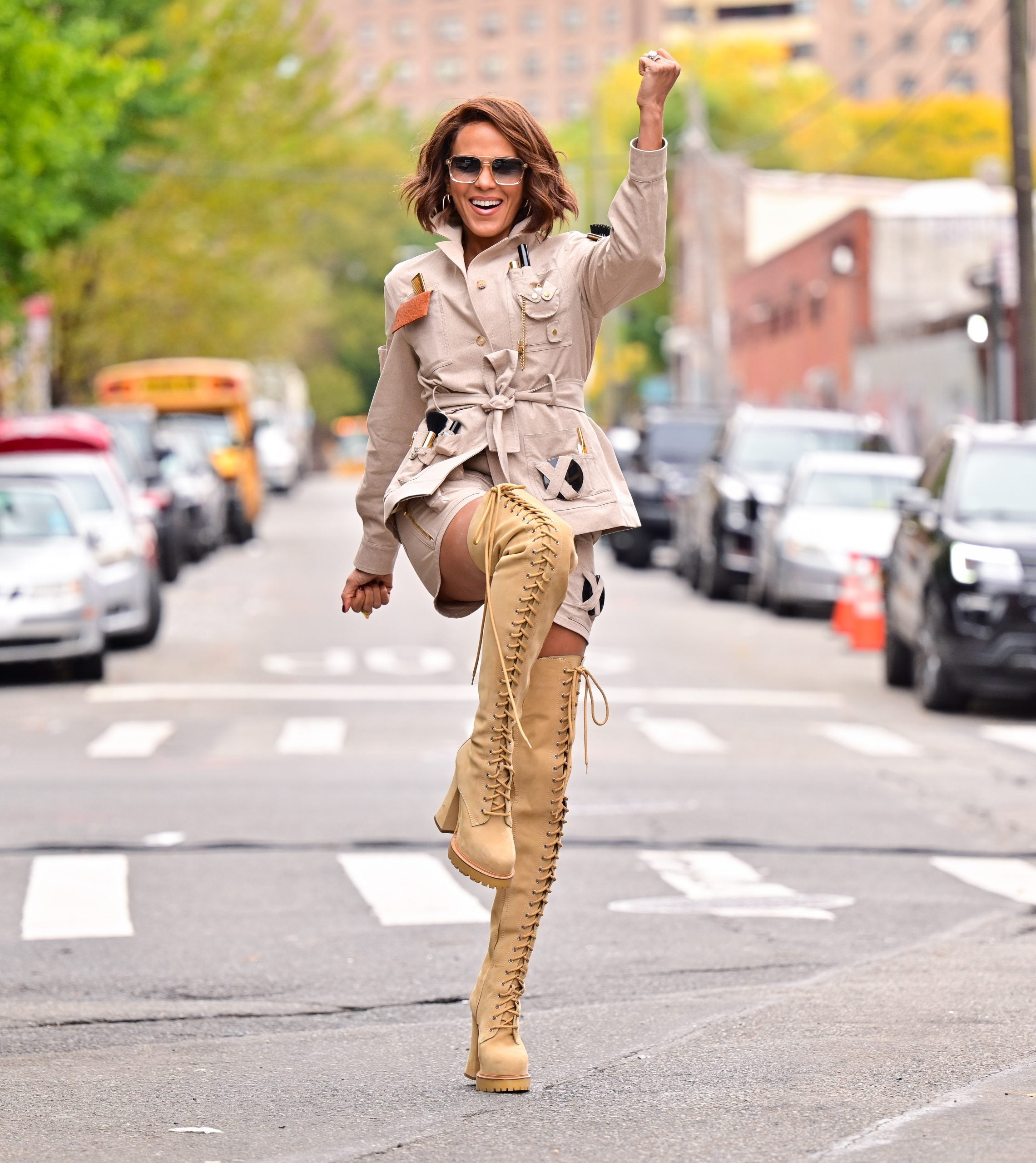
Sex and the City is joining the growing list of shows being reimagined and rebooted. But this time around, the cast and characters will be more reflective of the people that make up New York City. Actress Nicole Ari Parker joins the cast of And Just Like That as Lisa Todd Wexley, a documentarian and mother of three. ESSENCE caught up with Parker to discuss the initial backlash she received from fans after her casting announcement, what the show gets right with its characters and why Parker believes there’s still room for skepticism.
Going into And Just Like That did you feel any nervousness or trepidation because this is such a beloved franchise?
PARKER: I was so excited to be a part of something that was so iconic, that was rebooting and reinventing itself, adding characters of color. I didn’t really experience any overwhelment about the fanbase of the show until the news of my character kind of leaked out as the new girl. It wasn’t said that this is one of the new girls. I got the initial backlash of, ‘Oh, no she didn’t!’
Black and white fans all over the world lost their minds as if I had replaced the Samantha character. First of all, my Baltimore got activated and I was like, ‘Sis, got a job!’ Let’s start there. B.) Kim Cattrall is irreplaceable. And C.) this is an opportunity to make Sex and the City look like the city.

Then when I got to work and actually got to look at the script, I was double relieved that the writers’ room they had assembled tried to make sure that these [characters] were well-rounded people. There was no tokenism. There was no patchwork characters. They were all fully fleshed out and different.
And listen, they are not going to magically resolve the massive conflict that we are continuing to struggle with in this country; but without giving away too much, they did try to have those issues trickle down into conversations between two women that might become friends. How does the absence of Black people in your life manifest when you’re invited to a dinner party, have a cup of coffee or pick up your kids from the same school?
That’s where the show is dealing with the elephant in the room of real life circumstances triggering real life circumstances but in a half-hour iconic comedy format.
That’s good to hear. The show was a hit worldwide and I think so many fans felt left out.
PARKER: Some of us also thought, ‘Well, if you had a Black girlfriend, I would have told you how to deal with that, real quick.’ I know that sometimes I felt sorry that their lives were in a bubble. Like, ‘Why are you crying over that?’ Why didn’t you speak up?’ or ‘Wow, I can see that you don’t really know how the rest of the world works.’
Now, I think they figured it out for this first-time approach and still stay on brand and be the show that everyone knows and loves.
There was a lot of attention to getting it right. And it wasn’t just on the page. The art department figured out what would really be in this woman’s [my character’s] apartment. Whatever they did, that’s the kind of stuff that I thought, ‘I know this person. How do y’all know this person?’
Now, there are going to be things that you’re going to be like, ‘Why didn’t they talk about that more?’ or ‘Why was that scene so short?’ or ‘What happens now?’ But it’s just not possible in the first season. Hopefully, we get a second one and go deeper.

What were you most surprised about seeing how this show runs from the inside?
PARKER: First of all, I was stunned at how beautiful Sarah Jessica Parker, Kristin Davis and Cynthia Nixon are. Everybody puts so much pressure on women around aging. And they were just warm and kind and welcoming. I wasn’t prepared for that. This is their show, twenty years of their rhythm and I wondered if there was going to be the warmth there and it was.
Secondly, they’re executive producers on the show now, so they really have a voice.
And I think also the transparency in the writing and how they wanted to massage this thing. Because they’re dealing with the absence of Samantha, adding in two Black women, a non-binary Latinx person and an Indian actress in the midst of one of the most critical moments in American history in terms of race relations. At the same time, this is not the show where we’re going to discuss 1619.
Can you speak to the importance of seeing women in their fifties still be considered sexual beings?
PARKER: They’re still vulnerable and yet self-actualized. They’re still managing the quirks and unpredictability of life; but totally seasoned in the choices they’ve made. And secure. And in some places, insecure. Like how we really are and not making a big deal about it. It’s the same way it was when you watched it when you were twenty. I stayed out too late and I don’t remember his name. Or ‘Oh my God, he’s walking toward the table.’ In your fifties you have those same mortifying moments, you just handle it differently.
For people who do have reservations, what would you say to them about tuning in?
PARKER: I say, have reservations. Be skeptical. Listen and see what’s missing. Don’t be afraid to speak on it. And also, see what’s done right and acknowledge the step, even if it’s a baby step.